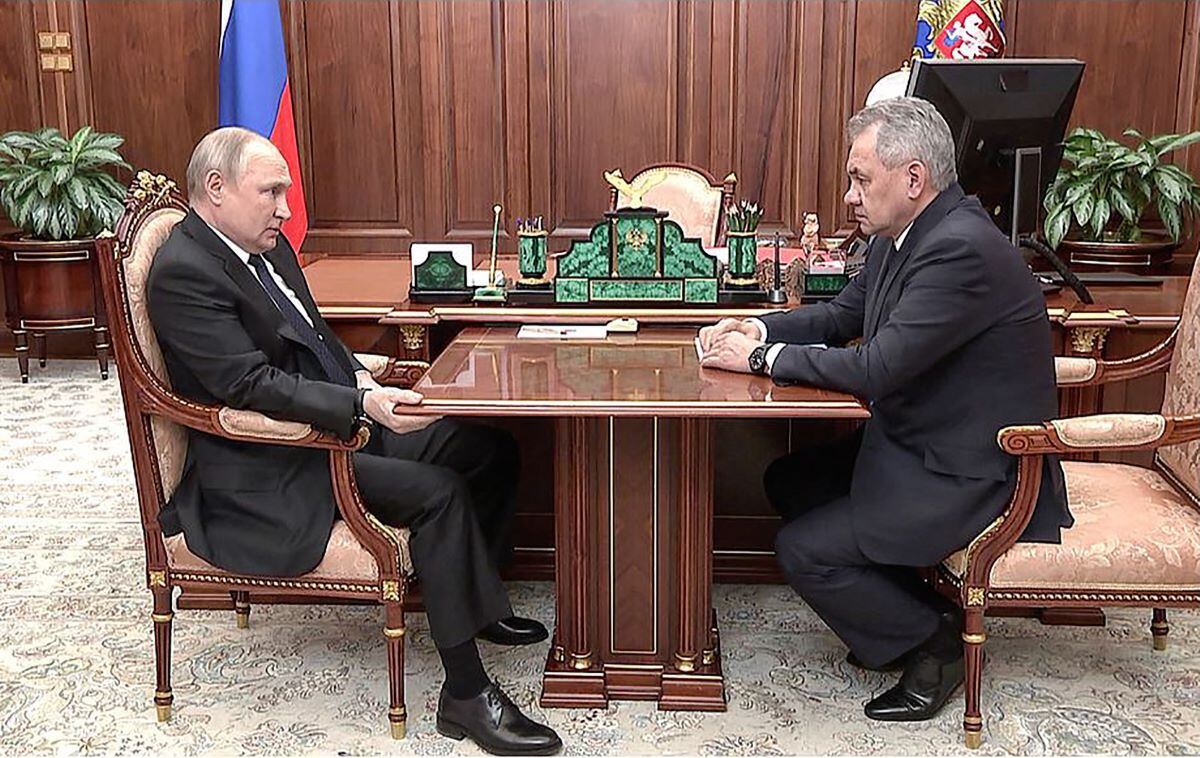The strange disappearance of many Russian soldiers, oligarchs, including Vladislav Surkov, considered the “gray eminence” of Vladimir Putindemonstrates the dimensions that the Stalinist purge launched by the Kremlin czar to sanction dissidents, “traitors” and suspects is reaching.
Ubiquitous in the Russian state media before the invasion of Ukraine, all seem to have evaporated for weeks. Not counting dozens of mysterious deaths among the country’s most powerful oligarchs and their families.
LOOK: The long-awaited shipment of heavy weapons to Ukraine and why Russia is worried
“There is no doubt that Putin is carrying out internal purges among the generals and the personnel of the intelligence services (…) either for having made inaccurate estimates, for revenge for wrong information or criticism against his decision to launch a war”, observed in mid-March the Institute of Warfare (ISW), an American think-tank.
The most emblematic case of the current situation is undoubtedly that of Vladislav Surkov. Nicknamed “the Putin’s Rasputin”, advisor to the Russian president for Ukraine, the man who for 20 years contributed to the construction of “Putinist” propaganda developing the concept of “sovereign democracy”, has just been placed under house arrest in Moscow, for unknown reasons .
LOOK: Russia warns giving heavy weapons to Ukraine threatens Europe’s security
That purge was evoked in a low voice by the Russian autocrat himself in a televised speech with his ministers on March 16. A speech of stark violence, where Putin called for “self-purification”: “The people will know how to distinguish true patriots from scum and traitors, and spit out the latter like a fly that entered the mouth,” he said.
suicides?
The method seems effective. Only a handful of oligarchs affected by Western sanctions dared cast any doubts about the invasion. Many of them left the country. Most have been targeted in recent weeks in mysterious “suicides,” all curiously similar.
Alexander Tyulyakov, 61, deputy director of the treasury of Gazprom, the all-powerful state energy company, was found hanged in the garage of his apartment on February 25, near St. Petersburg. The independent newspaper Novaya Gazeta reported that medical examiners were already working on the case when Gazprom’s security services arrived and kicked everyone out.
Three days later, Mikhail Watford, 66, a Russian business tycoon oil and gas of Ukrainian origin was found hanging in the garage of his home in south-west London. On March 24, millionaire Vasily Melnikov was found stabbed along with his wife and his two children in their Moscow apartment. For the investigators, the financial situation of the leader of the pharmaceutical firm MedStom, victim of the Economic sanctions Westerners would have triggered the murder of his family members and his own suicide.

riddled
Vladislav Avaev He also died in Moscow, along with his wife and 13-year-old daughter. Everyone riddled with bullets. Avaev was the former deputy chairman of Gazprombank, the financial arm of Gazprom. Avaev would not have endured the infidelities of his wife, Yelena (47 years old) accused of expecting a child from one of his drivers.
Sergei Protosenya, former CEO of the Russian gas giant Novatek, was also hanged in a luxurious house in Lloret del Mar, Spain. The bodies of his wife and his daughter lay in the residence, brutally stabbed. The death of Leonid Shulman, 60 years old, is something particular, since the 60-year-old director general of Gazprom was found dead in the bathroom of his house on January 30, a month before the invasion of Ukraine.
In the ranks of the intelligence services and the armed forces, the situation does not seem better. Even “bunkered”, Vladimir Putin is not mistaken: nothing in the “denazification” of “Little Russia” – as most Russians call Ukraine – goes as planned. Does that explain the strange disappearance of many of the military leaders?
Defense Minister and personal friend of Kremlin chief Sergei Shoigu recently reappeared, in civilian clothes, after Western media widely speculated about his absence. For Moscow, both Shoigu and his chief of staff, General Valery Guerassimov -volatilized since March 11- would be “extremely busy”.
Despite his central position, Guerassimov, 66, has not made a public statement since March 12. North American officials say they spoke to him by phone on the 18th of that month. But the general would have “refused to answer” a new call, six days later.
At the head of the powerful FSB (exKGB) for 14 years, Alexander Bortnikov left his mark on internal espionage with blows. The 70-year-old former general hates opponents. The United States suspects him of being directly involved in the attempted poisoning of dissident Alexei Navalny. In two different videos, released on Friday March 11 and March 24, Bortnikov does not say a word, is dressed exactly the same and is standing in front of the same background. Until recently, specialists considered him a possible successor to Putin. After the war, there were those who claimed that he could be the leader of a palace revolution.
He said the invasion was “slow”; she was not seen again
Putin’s former bodyguard, appointed to head the National Guard as a reward for his fidelity, Victor Zolotov, 68, would have had the audacity to publicly acknowledge that the invasion was taking place “more slowly than expected.” Since then he has never been seen again.
According to the British intelligence services, some 150 agents of the Russian intelligence services have been relieved or imprisoned, such as its director, Lieutenant Colonel Serguey Beseda. All of them worked for a division known as the Fifth Service, created by Putin to keep the former Soviet republics in the Russian orbit.
“For a month now, Beseda has been sleeping in the sinister Lefortovo prison for ‘providing false information to the Kremlin about the true situation in Ukraine before the invasion,’” according to the Bellingcat research group.
The cleaning unleashed by the Kremlin recalls others. Lefortovo, a prison run by the FSB, has an underground shooting range with bullet holes left during Stalin’s purgeswhen the room was used for mass executions.
Source: Elcomercio

:quality(75)/cloudfront-us-east-1.images.arcpublishing.com/elcomercio/5OTLASBZ6ZBODF7EJIWWVDJIXE.jpg)

:quality(75)/cloudfront-us-east-1.images.arcpublishing.com/elcomercio/R3BFGYGHNBENTF2OR7JTO7S67U.jpg)



